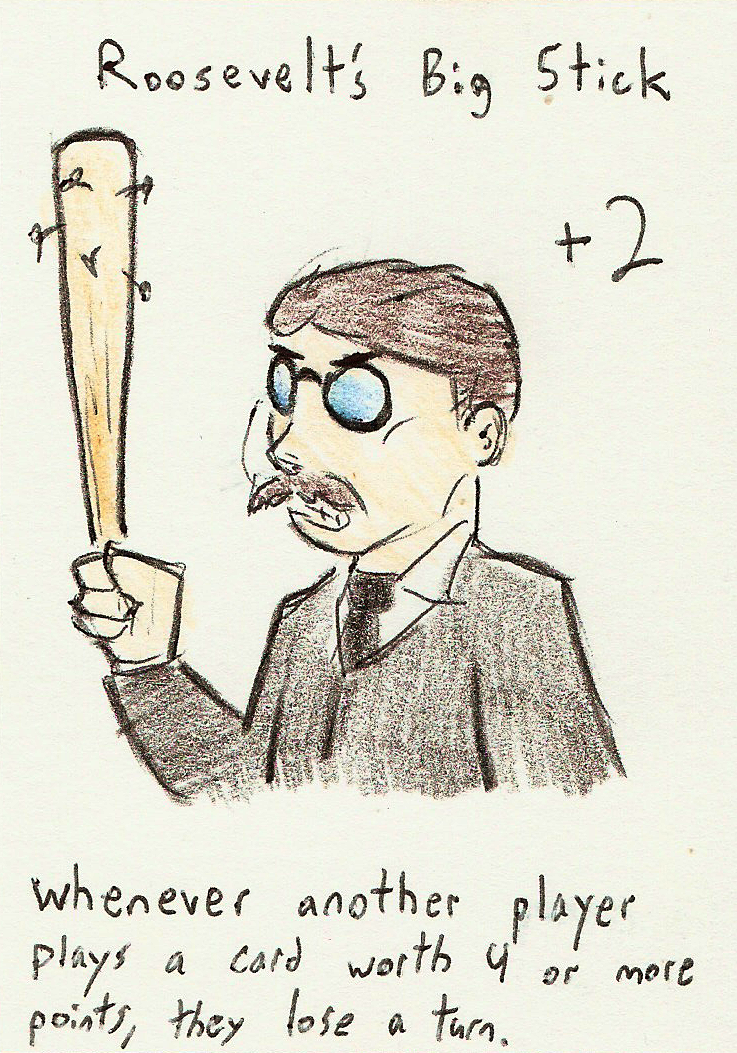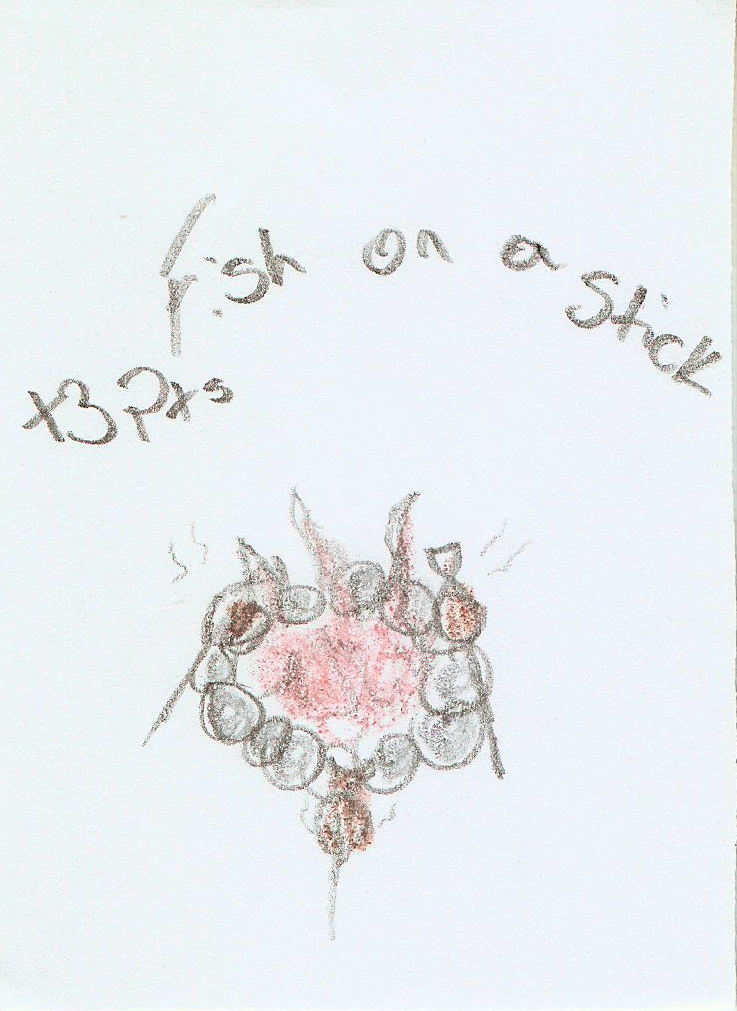1,000 Blank Cards
 Or Just Blank Cards. I found this on the internet, under the name 1,000 Blank White Cards, I think. The "official" version has some kind of philosophy of chaos associated with it, which I don't really care about, and slightly different rules.
Or Just Blank Cards. I found this on the internet, under the name 1,000 Blank White Cards, I think. The "official" version has some kind of philosophy of chaos associated with it, which I don't really care about, and slightly different rules.This is a simple card game where players take turns drawing and playing cards from a shared deck to score points. The twist is that you and your friends make all the cards from scratch! You can make more cards after each game, so the deck keeps getting larger. New cards can play off of older ones, and themes can be developed.
Materials
You'll need some paper and writing implements to make the cards with. Cut the paper into rectangles that are about the same size as a standard playing card (3.5 inches by 2.5 inches). Alternatively, you may be able to find card stock that's already cut to size at art supply stores. I'd recommend putting the paper into card sleeves with an actual card behind it (a regular playing card or old CCG card). This will keep them from wearing out too fast as well as give them the right weight and feel.You may want to have some dice handy as well, to keep track of things.
Making Cards
Before playing your first game, have everyone make 6-8 cards to get the deck started. For the first batch of cards, try to stick mostly with simple cards that are just worth points and don't do anything too fancy. Work together to come up with themes and ideas. Give each of the cards a name, a point value (like "+2", or "2 pts", etc), and a picture.Some things to keep in mind when creating cards...
- You may want to decide on a point range for most of the cards, like 1-6. Cards worth more points should be rare or come with some kind of condition or drawback.
- Cards that are played to the table must be played in front of the player who played them, unless they say otherwise. So if you want to make card that's worth negative points, for example, you might want to add some rules to the card saying that you can give it to another player.
- Cards with no point value are normally discarded immediately after applying their effect. If you want a card with no point value to be played to the table, write "(keep)" or something similar on it.
- When making cards that affect other cards, you may want to specify whether it affects cards on the table or in hands.
After each game, players can make new cards if they want, and add them to the deck. They can collaborate or keep them secret as a surprise. Cards can have any effect that players can imagine: Steal other cards, search the deck, change point values, etc, etc. They don't have to have any effect, and you may want to add more simple point cards to the deck once in a while to keep things from getting too convoluted (or not!).
Playing the Game
 Set Up: Shuffle the deck. Everyone draws a hand of four cards. Decide who goes first.
Set Up: Shuffle the deck. Everyone draws a hand of four cards. Decide who goes first.Goal: The first player to reach a certain agreed-upon number of points wins the game. If the deck runs out of cards, whoever has the most points wins.
On each player's turn, they refill their hand back up to four cards, and then may play one card from their hand. Cards that have a point value, or that say to "keep" them, are played onto the table in front of the player. Otherwise, just do what the card says and then place it into the discard pile.
That's all there is to it!
Here are some clarifications and additional rules that we came up with...
- There is one discard pile shared by all players.
- If a player doesn't like their hand or doesn't want to play anything, they can skip playing a card during their turn, and instead discard any or all of the cards in their hand.
- There's no maximum hand size. If you already have four or more cards in your hand when your turn comes up, then you don't draw any new cards.
- Cards can't be "given away" to other players unless they say so.
- If a card doesn't specify whether it affects a card on the table or in a player's hand, it can affect either. So, if a card says something like "another player must give you a card," they can give you a card from their hand or one of their cards from the table. You can't look at cards in other players' hands unless the played card says you can.